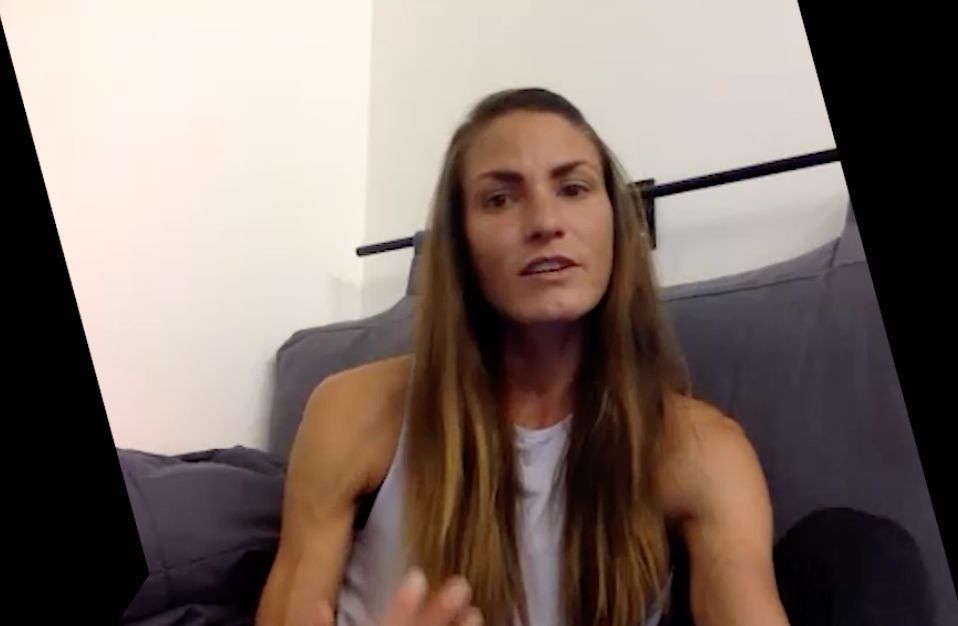She ran her first marathon at the age of twenty-nine. Only two years passed and Marcela Joglová finished in twentieth place at the World Championships in Doha. While running, she thought of her mother, who supported the whole family financially and did not give up, but also of her problems with bulimia, which she was able to overcome. The native of Klatov told about all this in the podcast, which is being prepared by the Bez frazí project in cooperation with Aktuálně.cz.
Bulimia nervosa is an eating disorder in which the sufferer suffers bouts of overeating, followed by depression and guilt. Marcela Joglová could tell about it: she struggled with an insidious mental illness for many years.
“She kept me in chains for a long time. I stumbled in a vicious cycle of vomiting, lying to those closest to me and regretting that I couldn’t do it,” says the athlete, who celebrated her thirty-fifth birthday last week.
Food became the center of her life. She didn’t think about anything other than what she would get, she planned suitable moments when she would be alone at home and could “let go”.
She first started to worry about her weight in the middle of the ninth grade of primary school. At first glance, serious problems were started by a banal dig from a classmate who mentioned her background in a not-so-flattering way. “I did a lot of sports, I don’t think I was overweight. But guys at that time sometimes made rude comments, and one of them, who I liked, just jokingly said that my ass was growing a little,” recalls Joglová.
The then-teenager took the remark too personally and not as an attempt at a joke. And what’s worse: two weeks later, she watched a drama on TV about an athlete who maintained her desired weight by vomiting. “Despite the good ending, the film had an ugly course, but it didn’t discourage me. On the contrary, I interpreted it as a solution to the problem of my ass growing in quotation marks. I tried it once, the food went out, the weight went down. It was very quickly visible and I she reached for it more and more often. At first occasionally, but then it became a daily routine,” describes the beginning of the story, the full version of which you can read HERE.
As a teenager, she was able to organize quanta of food during her attacks. She alternated between salty and sweet, and once again. She did not avoid even the least healthy foods. In one day, she managed to eat ten rolls, an entire cake pan, half a kilo of spekkaček, plus a large cup of walnut salad, two bars of chocolate, a can of sweetened milk, and as part of dessert, a couple of cakes.
“But at the same time, the food in my stomach really bothered me. The moment I ate something, I felt remorse, I felt that there was something there, I was afraid that I would gain weight, so I had to go to the toilet to throw it away,” she says.
She used to spend all her pocket money on favors, and when the money ran out, she went to the store in desperation for some trinket without paying for it. “I’m ashamed of it, but I was in such a situation that I couldn’t help it. One lady even caught me in Plánica, she was even an acquaintance of ours. But she was good, she took me aside, she dealt with it sideways.”
She hid her problems from her loved ones for half a year, only confiding in her mother during the holidays at the end of primary school. Events then took a rapid turn: first she was treated in a hospital in Pilsen, then she spent the next vacation in Motola. She endured the strict regimen at the Prague clinic, but a week after her release she was vomiting again. “I was very angry with myself. I ran up the hill and screamed,” she admits.
During further studies at the gymnasium, she easily leveled up, and athletics, which the school coaches introduced her to, helped her in this. But another ominous period came with matriculation and entering college. Her problems then escalated the moment she found a new boyfriend.
“He was very kind, positive, friendly, his family worked beautifully. Like in some movie, I even thought he was messing with me. By living with him, he was able to take good care of me, he tried to make things easier for me. However, it happened that my problems accelerated, I started to live carefree, chaotically. I was negative, I didn’t know what to do with myself. I had no idea how to get out of it,” recalls Joglová.
What had to happen happened: her partner registered more and more difficulties, once he even caught her vomiting. “He put a knife to my neck so I could pull myself together. One of my classmates, who also had problems with eating, referred me to professional help, so I got to a doctor. We dealt with the treatment step by step with her, it took half year.”
During group therapies, she was greatly helped by the fates of other patients, in some stories she saw her own. She went through the worst hell in 2016, and a year later she started running again. Her life got a new meaning, a new order.
And the successes came miraculously quickly. In 2019, she took 20th place in the marathon at the World Championships in Doha, the year before she qualified for the Olympic Games in Tokyo. In the same year, she ran the third fastest marathon in the history of the Czech Republic.
–


